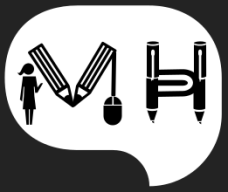Product management is a multifaceted role that demands a wide array of skills. To excel in this position, one must continuously evolve and expand their knowledge and capabilities. In this article, I’ll share how I’m actively enhancing my skill set to become a more effective product manager. I’ll delve into key areas, such as strategic thinking, communication, technical proficiency, user research, project management, leadership, and adaptability, and explore the potential of AI to boost your effectiveness in these domains.
Strategic Thinking and Analytical Skills
Product managers are tasked with shaping a product’s direction, prioritizing features, and making crucial decisions. I’ve enrolled in the Google Professional Data Analytics certificate program, to gain expertise in data analytics tools like SQL, R, and Tableau. This knowledge will allow me to dissect and visualize data, enabling data-driven decisions for product enhancement.
Communication
Actively engaging with stakeholders, including developers, UX designers, sales teams, and customers is pivotal. As a product manager, you should be able to articulate your vision for the product and align everyone around a common goal. Working closely with stakeholders is the best way to avoid biased assumptions and create an effective product vision. This approach also minimizes risks and ensures customer satisfaction.
I personally take every opportunity to have a chat with my colleagues and other people working in the industry, ask questions, and speak in front of an audience. This approach has helped me become more confident (I still get nervous, but instead of running away from that feeling, I take it as a sign of growth), gain visibility, network, and understand issues from a different perspective (and find unexpected and interesting opportunities as well).
Technical Knowledge
While product managers don’t need to be developers themselves, they should have a good understanding of the underlying technology. This allows us to make informed decisions about what features are possible and what trade-offs need to be made. Although I don’t have a traditional technical background, I don’t shy away from the source code. Actually, figuring out what a piece of code does brings me joy.
To improve my technical knowledge, I usually participate in hackathons within my organizations. I usually start with an idea of a problem that I want to solve and then try to tweak an existing piece of code to improve the user experience. I did it in one of my previous roles as a technical writer (where I embedded JavaScript in our documentation topics to make it more interactive) and again as a product manager to embed the release notes in a dialog to be displayed to users the first time they log into our app after every new release. I’ve also created prototypes for the mobile version of different applications, applying my newly gained knowledge of UX design.
I’m also aware of the importance of understanding the challenges the development teams may face, trying to use the same technical jargon, and understanding the stacks they work with to be more precise. One of the topics that I fell in love with is design thinking and how to apply it to optimize UX by using Angular material. Studying this technology in detail helped me to create better stories and ensure consistent, accessible, and multilingual experiences.
User Research
Product managers must grasp user needs through research methods. This includes things like surveys, interviews, and usability testing, which provide me with valuable insights into user interactions, enabling product adjustments that align with their expectations.
Project Management
Product managers need strong project management skills to manage a team of developers, designers, and other stakeholders to ensure that the product is delivered on time and on budget.
Leadership
Effective product managers inspire and motivate their teams toward a common goal. As a product manager, I always try to provide guidance and direction and create a positive work environment that fosters collaboration and innovation.
Adaptability
Change is the only constant, also in product management, and adaptability is paramount. Product managers need to be able to adapt to changing circumstances, whether that’s a shift in the market, a change in customer needs, or a new technology that disrupts the industry. I’m not afraid to pivot the product strategy as needed to stay ahead of the competition.
Using AI to Boost Product Management Effectiveness:
AI has emerged as a powerful tool to enhance product management. I’ve started to use it in several ways:
- To analyze data: AI-driven data analysis tools can sift through vast datasets, uncover patterns, and provide insights, aiding product managers in making informed decisions.
- To gain customer Insights: AI can analyze customer data, feedback, and behavior to provide actionable insights, helping product managers understand user needs better.
- To anticipate trends: AI can predict trends and user preferences, allowing product managers to proactively address customer demands.
- To automate tasks: AI can automate routine tasks, freeing up product managers to focus on more strategic activities.
- To support market research: AI-powered tools can perform market research efficiently, identifying opportunities and threats.
Conclusion
Becoming an exceptional product manager requires constant self-improvement and skill development. By focusing on strategic thinking, communication, technical knowledge, user research, project management, leadership, and adaptability, I’m preparing myself for success in this dynamic field. Additionally, harnessing the potential of AI allows us to supercharge our capabilities, making us more effective product managers who can meet customer needs and drive company growth in this ever-evolving landscape.

